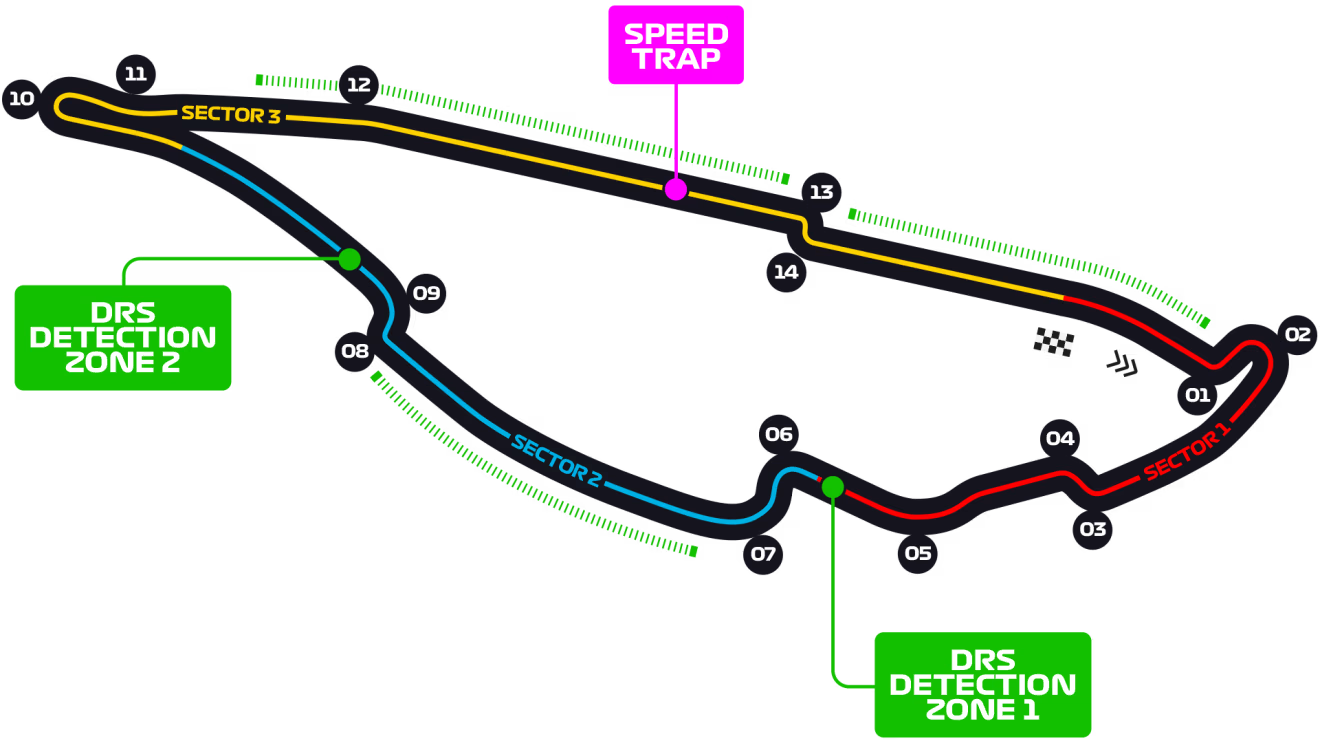Ferrari eyes key F1 points in Montreal, focusing on power unit performance and race execution on the unique Gilles Villeneuve track.
Ferrari is unsure of what to expect in terms of performance at the Circuit Gilles Villeneuve in Montreal, host of this weekend’s Canadian Grand Prix. The Scuderia aims to maximize its points tally on a track that is very different from the last three it has visited, as team principal Fred Vasseur explains.
“We have worked with maximum commitment within the team at Maranello to prepare as well as possible for the Canadian Grand Prix, which takes place on a circuit very different from those we have raced on recently,” said the Frenchman.
“We are coming off a series of races in which we have made progress in terms of performance and execution, especially on Sundays. We want to continue in this direction by maximizing our result in Montreal as well, bringing home the best possible points haul.”
Ferrari has already claimed 12 wins in Canada and stood on the podium there 37 times. A key factor to performing well on this fast circuit that winds between the walls of Île Notre-Dame is a powerful engine, as explained by Fredrik Westin, the team’s engine engineer in charge of the turbo system.
“The Circuit Gilles Villeneuve, which measures 4,361 meters, features fast straights and tight corners where braking and acceleration are crucial. Nine of the 14 corners are tight at 90 degrees or more, with the final chicane being famous for catching out drivers who get too close to the wall exiting Turn 14,” said Westin.
“Lap time sensitivity to power and energy recovery is close to the seasonal average, so there’s nothing extreme there. The relatively long straights allow the turbocharger to recover the energy needed for the hybrid system.”
“Weather conditions can vary, and this year it looks like it will be cooler, which is good both for power unit cooling and for turbocharger functionality.”
With a quota of components — including turbos — to be managed throughout the season, managing stock and introducing new parts at the right time is crucial: “The number one priority is to cover the entire season with as low a risk of race failure as possible.”
“To do this, race mileage needs to be spread as evenly as possible across the season so that the highest mileage a power unit must cover in a race is as low as possible. We also take into account the requirements of each circuit and are ready to respond to post-race inspection results.”
“The second priority is to keep spare parts available that can be used without grid penalties, for example by ensuring that the third engine can be used in a race after the introduction of the fourth.”
“Spare parts may be needed for many reasons, not only due to power unit failures but also because of minor incidents or unusual signals detected in the data, which may require the team to set aside the planned race unit for further analysis. In such situations, you don’t want to have to introduce a fifth engine component and incur the associated penalty.”
“The third priority is to introduce a new engine at races where power matters most. But at the same time, we don’t want to bring in all the units too early in the season, so we can keep some in reserve to respond to issues that might arise.”
Westin recalls his journey with the team: “I started working at Ferrari in the summer of 2012. I completed my PhD on turbocharging and then worked for Saab, KTH, and GM on R&D for turbochargers in road applications.”
“When Ferrari needed an engineer specialized in turbochargers for the reintroduction of the turbo in 2014, my résumé arrived at just the right time, and the job I had dreamed of became reality. I’ve worked on the F1 turbocharger ever since, as the scope of the work and the size of the team have grown.”

